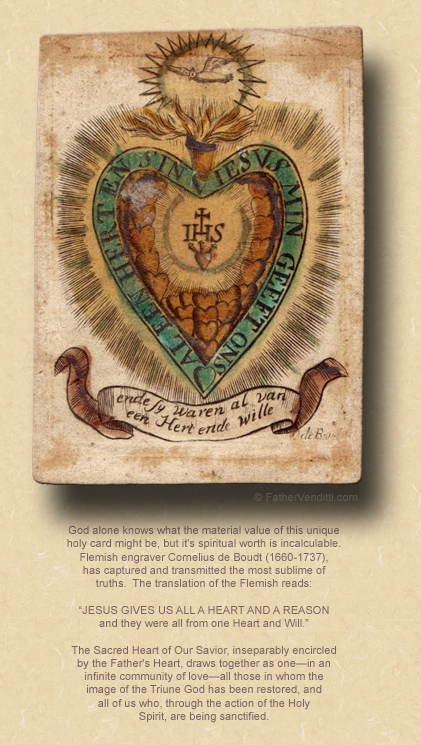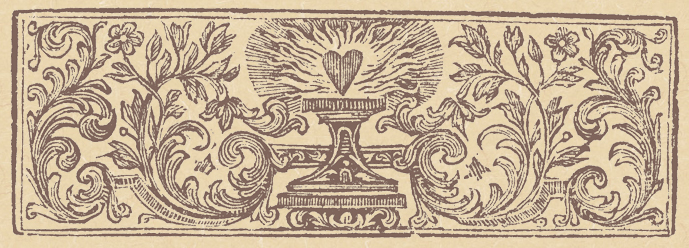Don't Sweat the Small Stuff.
The Twenty-Second Friday of Ordinary Time.
Lessons from the secondary feria, according to the ordinary form of the Roman Rite:
• I Corinthians 4: 1-5.
• Psalm 37: 3-6, 27-28, 39-40.
• Luke 5: 33-39.
The Third Class Feast of Saint Stephen, Confessor.*
First & second lessons from the common "Os justi…" of a Confessor not a Bishop, third from the proper, according to the extraordinary form of the Roman Rite:
• Ecclesiasticus 31: 8-11.
• Psalm 91: 13-14, 3.
• Luke 19: 12-26.
The Fifteenth Friday after Pentecost; the Feast of the Holy Martyr Mammas; and, the Feast of Our Venerable Father John the Faster, Patriarch of Constantinople.**
First & third lessons from the pentecostarion, second & fourth from the menaion for the Martyr, according to the Ruthenian recension of the Byzantine Rite:
• Ephesians 1: 7-17.
• Romans 8: 28-39.
• Mark 8: 1-10.
• John 15: 1-7.
FatherVenditti.com
|
 9:14 AM 9/2/2016 — For the benefit of those who are not here with us every day, we’ve been looking in some detail at Saint Paul’s First Epistle to the Corinthians, which is currently being read at Holy Mass; and, as Chapter Four opens in today's Apostolic lesson, the Blessed Apostle Paul takes this issue of the divisions among the Corinthian Christians that he introduced for us the day before yesterday, and elevates it from a local concern to an ecclesiastical one: in other words, this isn't just a problem for the Church in Corinth; this is a problem for the Church everywhere, for no Church, not even in the great city of Corinth, stands alone. A lack of unity within the Church of Corinth threatens the unity of the entire Church of Jesus Christ; and, if the Corinthian Christians can't keep even their own local Church from splintering apart, how can any of them claim to be members of the One Church that Christ, Himself, established? 9:14 AM 9/2/2016 — For the benefit of those who are not here with us every day, we’ve been looking in some detail at Saint Paul’s First Epistle to the Corinthians, which is currently being read at Holy Mass; and, as Chapter Four opens in today's Apostolic lesson, the Blessed Apostle Paul takes this issue of the divisions among the Corinthian Christians that he introduced for us the day before yesterday, and elevates it from a local concern to an ecclesiastical one: in other words, this isn't just a problem for the Church in Corinth; this is a problem for the Church everywhere, for no Church, not even in the great city of Corinth, stands alone. A lack of unity within the Church of Corinth threatens the unity of the entire Church of Jesus Christ; and, if the Corinthian Christians can't keep even their own local Church from splintering apart, how can any of them claim to be members of the One Church that Christ, Himself, established?
Unfortunately, today's Apostolic lesson is only the introduction to this theme; he doesn't really get to the meat of the issue until tomorrow's lesson, which complicates things for us because tomorrow is First Saturday and I’m not offering the Mass.
But today is First Friday and, because there is no Memorial of a saint today, we are free to offer the Votive Mass of the Sacred Heart, and we will have our Holy Hour afterward, during which I will be available for confessions for those who weren’t on time to go before Mass. As usual, the Holy Hour will be mostly a silent one; after exposing the Blessed Sacrament I will ask you to join me in reciting the Litany to the Sacred Heart, after which the rest of the time will be yours to converse with our Lord. And so that you can make your plans accordingly, regardless of what time this Mass is over and the Holy Hour begins, we'll end the Holy Hour with Benediction precisely at one-thirty.
And our commemoration of the Most Sacred Heart fits in well with today’s lesson from Saint Luke. The event occurs right after the banquet which Levi—later known as Matthew—offered our Lord and his friends on the occasion of his calling. We’ve looked at that dinner party once before: how Matthew was so overcome with the idea that a thieving tax collector like him would be invited to join our Lord’s company, and how, even at the time of his calling, his conversion was not yet complete, as evidenced by the fact that he thought our Lord wanted a dinner party. But our Lord went anyway, because He was willing to meet Matthew where he was at; He was not willing to leave him where he was at, as we know, but He was willing to initially meet him there, as He is for us.
And here He’s challenged by those too interested in esoteric matters, those who like to hide their insecurities behind minute details that don’t, in the long run, mean anything, such as why our Lord and His disciples aren't practicing the same kind of asceticism that John and his disciples practiced. Our Lord's response is another reference to a wedding—He seems to like the image of a wedding—always referring to Himself as a bridegroom and we, His Church, as His bride. One day open up the First Book of Maccabees: the “friends of the bridegroom” held an important social office in Jewish society (I Mac. 9: 39); their job was to stand by the bridegroom throughout the whole process of preparing and submitting to the marriage ceremony, not just to join in his rejoicing but to do his will and take care of things for him.  When our Lord refers to His disciples as His friends, He clearly has this in mind, and He offers Himself as an example of genuine and unreserved friendship. As Saint Bernard put it so well: When our Lord refers to His disciples as His friends, He clearly has this in mind, and He offers Himself as an example of genuine and unreserved friendship. As Saint Bernard put it so well:
…at that moment He allowed all the tenderness of His Heart to escape; He opened His soul completely and from it there arose a most fragrant perfume, the perfume of a beautiful soul of a generous and noble Heart (Sermon on the Canticle of Canticles, 31, 7).
And so, on this First Friday of the month, we keep company with Him as His friends. To assist us with our prayers during the Holy Hour, let's review, once again, the promises made by our Blessed Lord to Saint Margaret Mary for those who honor the Most Sacred Heart of Jesus:
“I will give them all the graces necessary for their state in life.
“I will establish peace in their families.
“I will console them in all their difficulties.
“I will be their assured refuge in life and most especially at death.
“I will pour out abundant benedictions on all their undertakings.
“Sinners will find in my heart the source and infinite ocean of mercy.
“Tepid souls shall become fervent.
“Fervent souls shall advance rapidly to great perfection.
“I will bless the houses in which the image of my Sacred Heart will be exposed and honored.
“I will give to priests the power of moving the most hardened hearts.
“Persons who propagate this devotion shall have their names inscribed in my Heart, and they shall never be effaced from it.”
And, finally, “I promise thee, in the excess of the mercy of my Heart, to grant to all those who receive Communion on the First Friday of every month, for nine consecutive months, the grace of final repentance and that they shall not die under my displeasure, nor without receiving the sacraments, and my Heart will be their secure refuge at the last hour.”

* The holy King of Hungary, now regarded as the patron saint of his country, consecrated his kingdom to the Mother of God, converted his people to Christianity, overcame his enemies with kindness, and died famous for his charity and justice in the year 1038.
** Mammas was a shepherd, martyred in the year 275 under Emperor Aurelianus in Cæsarea of Cappadocia. He is commemorated in celebrated eulogies composed by Basil the Great in the East and Gregory the Great in the West.
John was born and raised in Constantinople, and occupied the Patriarchal See from 582 until 595. He is nick-named "the Faster" because of his ascetical life and penitential practices.
|

